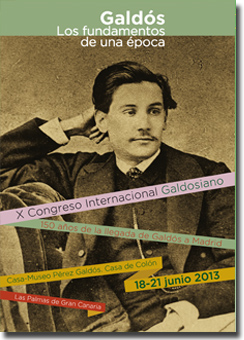FUNDAMENTOS Y FEMINIDAD EN 'LA BATALLA DE LOS ARAPILES': EL EVENTO DE INÉS/ANTÍGONA / FOUNDATIONS AND FEMININITY IN 'LA BATALLA DE LOS ARAPILES': THE EVENT OF INÉS/ANTIGONE
Palabras clave:
La batalla de los Arapiles, Episodios Nacionales, evento, pensamiento débil, teopoética, feminidad, feminismo, event, weak thought, theopoetics, femininity, feminismResumen
La noción de Antígona como hija fiel, fuente y vehículo para la expresión de un amor generalizado, universal, constante, y presente desde los orígenes le llama la atención a Galdós, y la utiliza como modelo de feminidad en la última novela de la Primera Serie de los Episodios Nacionales, fundamento galdosiano. Este artículo propone que Inés, encarnación del amor caritativo, termina siendo el eje de la obra porque representa el evento, según la definición de ese término popularizada por Derrida, Deleuze y Badiou, y aplicada por la teopoética y los partidarios del pensamiento débil (Vattimo) al evento poscristiano. Esta lectura encaja con la de María Zambrano, que ofrece una interpretación parecida de la obra de Galdós.
The notion of Antigone as faithful daughter –as source of, and vehicle for, the expression of a generalized, universal, and constant love which is present since the beginning– attracted the attention of Galdós, who used this idea as a model for femininity in the final novel of the First Series of Episodios Nacionales. This article proposes that Inés, incarnation of charitable love, is in effect the axis of the novel, because she represents the event, according to the definition of this term popularized by Derrida, Deleuze, and Badiou, particularly as it is applied in theopoetics and by proponents of weak thought (Vattimo) to the post-Christian event. This reading coincides with María Zambrano’s, who offers a similar interpretation of the work of Galdós.




